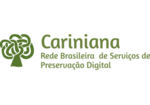Whatsapp as a possibility for building knowledge collaboratively: a significant resource for teaching Astronomy
DOI:
https://doi.org/10.4025/rvc.v3i2.66335Keywords:
Whatsapp, Teaching, AstronomyAbstract
The objective of this research is to present the contributions of a continuing education course in Basic Astronomy for the constitution of a formative and reflective trajectory of Science teachers in the final years of Elementary School and how Whatsapp can enable the construction of knowledge in a collaborative way. The methodology adopted has a qualitative approach. Data collection took place during continuing education. Data analysis was carried out as recommended by the discursive textual analysis method. From our results, Whatsapp is noted as an important tool for debates, exchanges and interactions between teachers. One year after finishing the training course, discursive interactions that constitute collaborative actions, allowed us to infer that even after some time after finishing the course, teachers feedback to a reflective pedagogical practice.
Downloads
References
BINATTO, P. F.; CHAPANI, D. T.; DUARTE, A. C. S. Formação reflexiva de professores de Ciências e Enfoque Ciência, Tecnologia e Sociedade: possíveis aproximações. Alexandria: Revista de Educação em Ciência e Tecnologia, Florianópolis, v. 8, n. 1, p. 131-152, 2015.
CALIXTO, V. S.; GALIAZZI, M. C.; KIOURANIS, N. M. M. A Análise Textual Discursiva como um exercício de ampliação de horizontes compreensivos acerca da pesquisa qualitativa. Vitruvian Cogitationes, Maringá, v. 2, n. 1, p. 45-64, 2021.
CUNHA, A. M. O.; KRASILCHIK, M. A formação continuada de professores de Ciências: percepções a partir de uma experiência. p.1-13, 2004. Disponível em: www.anped.org.br/reunioes/23/textos/0812t.PDF. Acesso em: 10 mar. 2020.
DILLENBOURG, P. What do you mean by collaborative learning? In: DILLENBOURG, P. (Ed.). Collaborative learning: Cognitive and Computational Approaches. Oxford: Elsevier, 1999. p.1-19.
GERDY, G. Dow Jones - Business Information Services on the Internet. In: CRONIN, M (Org.). The Internet Strategy Handbook. Boston: Harvard Business School Press, 1998.
MELLO, L. A. R.; SILVA, M. F. V. A superação das dificuldades dos professores de Biologia para ensinar Física na oitava série – um estudo de caso. Revista Brasileira de Educação, Rio de Janeiro, 2004.
MORAES, R.; GALIAZZI, M. C. Análise textual: discursiva. 3. ed. rev. ampl. Ijuí: Editora Unijuí, 2016.
MORRIS, P. W. The management of projects. London: Thomas Telford, 1997.
MOREIRA, M. L.; SIMÕES, A. S. M. O uso do WhatsApp como ferramenta pedagógica no ensino de Química. ACTIO, Curitiba, v. 2, n. 3, p. 21-43, out./dez. 2017. Disponível em: https://periodicos.utfpr.edu.br/actio/article/download/6905/4616. Acesso em: 08 jun. 2019.
NERI, J. H. P. Mídias sociais em escolas: uso do Whatsapp como ferramenta pedagógica no ensino médio. Estação Científica, Juiz de Fora, n. 14, p. 1-25, jul./dez. 2015.
OLIVEIRA, S. L. Tratado de Metodologia Científica: projetos de pesquisas, TGI, TCC monografias, dissertações e teses. São Paulo: Pioneira Thompson Learning, 2014.
RAMBE, P.; CHIPUNZA, C. Using mobile devices to leverage student access to collaboratively-generated resources: A case of WhatsApp instant mes-saging at a South African University. International Conference on Advanced Information and Communication Technology for Education, 2013.
SILVA, G. B. Apontamentos sobre a evolução da administração federal do ensino secundário.
In: Documentário. MEC/DES, 1969.
VIEIRA, T. F.; BATISTA, M. C. Análise de investigações sobre Temas de astronomia e suas Abordagens no ensino médio brasileiro. Vitruvian Cogitationes, Maringá, v. 3, n. 2, p. 01-16, 2022.













